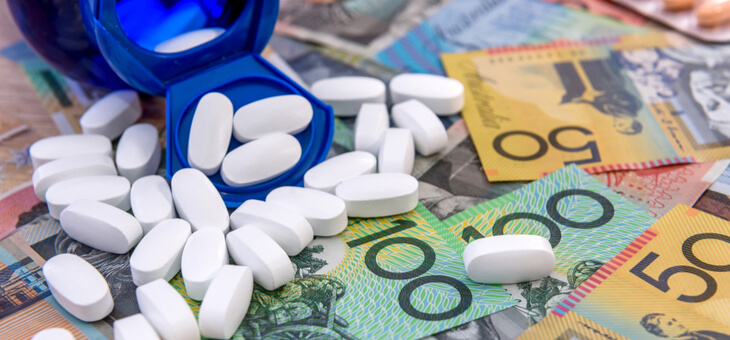It’s an election strategy almost as old as the Commonwealth itself. Last month, Prime Minister Scott Morrison made a pre-election promise of cheaper beer as he geared up for a re-election campaign.
Cheaper beer has long been a ‘go-to’ promise for those trying to win government, as it appeals to the broad population, but particularly to the working classes. It might be a vote-winner, but is it the responsible thing for a Prime Minister – or potential PM – to do?
Not everyone thinks so, and the medical fraternity has weighed in heavily on the debate. In an article in the Australian Journal of Pharmacy (AJP), the national president of the Pharmacy Guild of Australia, Professor Trent Twomey, called on Mr Morrison to shift his focus from beer to Pharmaceutical Benefits Scheme (PBS) medicines.
Read: Common pain medication causes loss of vaccine effectiveness
Prof. Twomey said the increasing cost of medicines was forcing some patients to delay getting prescriptions filled. “Research shows that some 900,000 Australians delayed getting prescriptions due to cost in 2020-21 and 31 per cent of middle-income households find it hard to afford medicines,” he said.
Women in particular were feeling the strain of cost increases, he said, adding: “Thirty-two per cent of women aged 35 to 54 are finding it hard to pay for medicines,” he said, “and the Australian Patients Association has found that more than 20 per cent of people aged 18 to 64 describe prescription medication as unaffordable.”
Prof. Twomey said that with the general co-payment now at $42.50, and heading towards the $50 mark, something had to be done, and done now.
What is the general co-payment?
As of 1 January this year, a patient may pay up to $42.50 for most PBS medicines or $6.80 if they have a concession card. This amount is known as the general co-payment. The Australian government pays the remaining cost.
Read: Cheap medication could save lives of COVID patients
Many PBS medicines cost significantly more than the co-payment amount. For example the full cost of the anti-stroke drug dabigatran etexilate is $81.63, but under the PBS co-payment scheme you will pay no more than $42.50.
That figure remains the same even for much more expensive medicines, such as fingolimod, used to treat multiple sclerosis. The full cost of fingolimod is $2219.51, but the co-payment amount remains at $42.50.
While that is an inarguably generous discount, for many on low incomes, $42.50 still represents a significant amount. And according to Prof. Twomey, those people would prefer that cost be reduced rather than the cost of beer.
Read: Study links non-prescription painkillers to tinnitus
“I know that if I asked my patients if they would prefer the cost of beer or the cost of medicines to be cut, they would say cut the cost of medicines,” he said. “People are struggling to afford essentials and going without their medicines should never be a decision Australians have to make.”
Evidence suggests patients not taking their prescribed medications would ultimately cost the federal government more than it would save by not keeping the costs of medications low. A 2019 study conducted by the University of Technology Sydney found the national cost of medication non-adherence was $10.4 billion, equating to $517 per adult.
If you enjoy our content, don’t keep it to yourself. Share our free eNews with your friends and encourage them to sign up.

